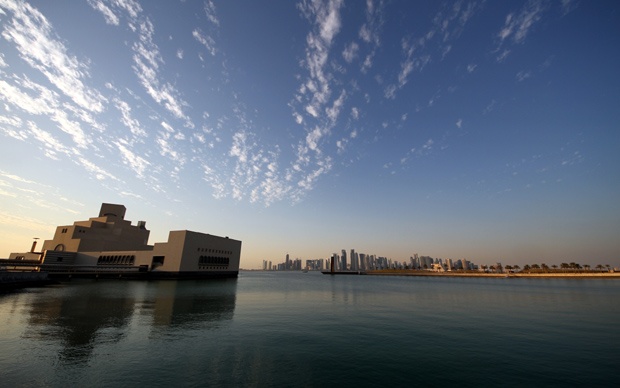The World Cup competition began in Qatar on Sunday, November 20. Many commentators have discussed the political controversies involving the host country Qatar and football’s world sponsoring organization Fédération Internationale de Football Association (FIFA). Despite those controversies, football is extremely popular. According to Kelly Phillips Erb of Bloomberg, the event is expected to generate more than $5 billion USD in revenue. Much of that revenue will go to FIFA, which is responsible for paying the prize money to participating national teams, the professional football clubs that send the players, and the athletes individually.
The pay to the players is based on the number of matches played with bonuses for winning, but the pay is expected to be nominal compared to their premier club contracts. Many of the players donate their World Cup pay. The total prize money to be paid out by FIFA will be about $440 million. The winning team will receive $42 million, but even those teams that finish at the bottom of the tournament will receive at least $9 million.
I wondered what some of the tax implications would be for the participants of the World Cup. Earlier this year Qatar announced procedures for obtaining tax exemptions related to the World Cup. This mostly focuses on exemptions from Qatar income tax, excise, and custom duties for entities involved in supporting the World Cup tournament. The tax exemptions apply to FIFA itself, along with the premier football clubs, the national teams, broadcasters, and other service providers associated with the World Cup event.
FIFA, which is organized in Zurich, Switzerland as a non-profit association, will generally not pay tax in Switzerland on the World Cup revenue. FIFA also generally requires that hosting countries agree to exempt the FIFA organization and all third parties involved in the World Cup from tax as part of the bidding process to host the event. But players may pay income tax on compensation and prize money received. Generally, players will be exempt from tax in the country hosting the tournament due to the terms of the hosting bid, and in Qatar’s case there is no individual income tax for employees anyway.
But the players may owe tax in their home country where they are considered tax residents as well as where they practice and play. There are special tax rules that apply to entertainers and athletes that make it more difficult to avoid taxation. Many high-profile footballers including Lionel Messi, Cristiano Ronaldo, and Neymar have had to deal with tax audits because of that complexity. Establishing tax residency in zero or low tax jurisdictions is a key tax planning strategy.
The bottom line is that, at a practical level, FIFA, the national teams, and the premier clubs will generally be tax exempt on earnings for their participation in the World Cup, and only the players themselves will potentially trigger a tax bill, generally taxed in their resident country because of playing in the World Cup.
The next World Cup competition will be in North America in 2026. They plan to expand from the current 32 team format to 48 competing teams. The U.S. will host 60 of the 80 games under FIFA’s 2026 plan, including all games from the quarterfinals on. The remaining 20 matches will be split between Canada and Mexico. With more teams and matches, the 2026 World Cup revenue will no doubt be even bigger in 2026. Similar tax exemptions are being negotiated by FIFA with governments in Canada, Mexico, and the United States. Given the potential for economic activity in the host cities, it seems these cities and states are willing to grant tax breaks to be part of the worldwide sporting event. As FIFA President Gianni Infantino has said: “Football unites the world. The World Cup is an occasion to bring people together in peace and joy.” And maybe also some tax-free revenue.




%20(77)%20(1).png)

%20(33).png)

